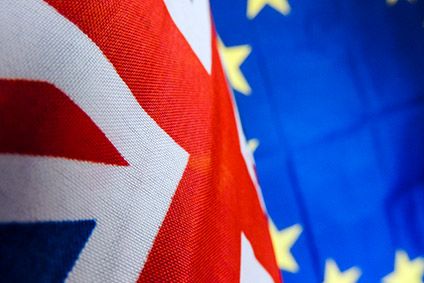
If Britain exits the European Union (EU) in March next year without a deal, it could lose access to dozens of trade agreements, the UK Government has confirmed in a recently published planning notice.
In a guidance notice entitled ‘Exiting free trade agreements if there’s no Brexit deal‘ drawn up by the Department for International Trade, the government says that as a member of the EU, the UK currently participates in around 40 free trade agreements with over 70 countries. These currently cover around 12% of the UK’s total trade.

Discover B2B Marketing That Performs
Combine business intelligence and editorial excellence to reach engaged professionals across 36 leading media platforms.
The document has been published six months ahead of Britain’s planned departure date of 29 March 2019 at which point a no-deal scenario is looking increasingly likely as political divisions with UK parliament and a failure to strike a final deal with Brussels on the Withdrawal Agreement all add to the risk.
The Government says it has been implementing a “significant programme of work” over the last two years to ensure the UK “will be ready from day one in all scenarios”, including a potential ‘no deal’ outcome.
“It has always been the case that as we get nearer to March 2019, preparations for a no deal scenario would have to be accelerated,” it says in the notice. “Such an acceleration does not reflect an increased likelihood of a ‘no deal’ outcome. Rather it is about ensuring our plans are in place in the unlikely scenario that they need to be relied upon.”
In the paper, the Government says that in the event of a no-deal Brexit, the UK will seek to bring into force bilateral UK-third country agreements with each of its 40 trade deals currently in place. If there is a gap between leaving the EU and negotiating new trade deals, trade will then take place on a ‘Most-Favoured Nation’ (MFN) basis – also known as ‘World Trade Organization (WTO) terms’ – in the meantime.

US Tariffs are shifting - will you react or anticipate?
Don’t let policy changes catch you off guard. Stay proactive with real-time data and expert analysis.
By GlobalDataUnder WTO rules, the principle of MFN treatment means the same rate of duty, on the same good, must be charged to all WTO members equally. This principle is subject to certain exceptions, including if a free trade agreement is in place. For services, the MFN principle means WTO members are required to grant treatment no less favourable to services and service suppliers of any other WTO member, than that which they grant to like suppliers from any other country.
The Government says the paper is intended as a guide only and is part of its “ongoing programme of planning for all possible outcomes”.
“We expect to negotiate a successful deal with the EU,” it concluded.





